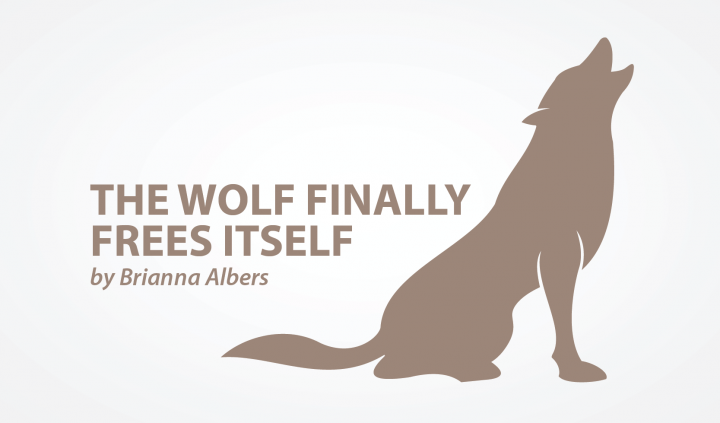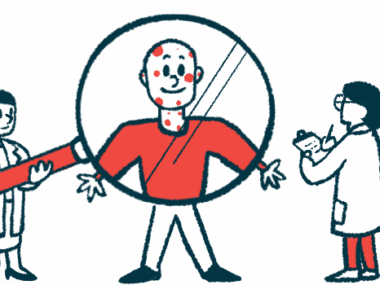When Resilience Is the Norm
Written by |

I have a reputation in my group of friends for not knowing any music. It’s gotten to the point where my friends have started making playlists of music that I missed out on in high school, such as Rihanna and The Black Eyed Peas. Sometimes when I’m on a walk, I’ll try to mix things up, but today I stuck with my tried-and-true playlist of two songs. Fall Out Boy screamed in my ears as I made my way through the neighborhood, marveling at the newness of the world. Even now, with our house in disarray, spring came exactly when I needed it. Doesn’t it always?
I went to the Gillette clinic again today. Nurses shook their heads at the ridiculousness of my veins. Every few minutes, someone told me I was doing great, to which I said, “Oh, I’m used to it.” That’s what I always say. I’m used to it. It’s not a big deal. Don’t worry about me. I’m a veteran, did you know that once I was poked 11 times in a row? This is nothing compared to that! Shrug the compliments off. Don’t bat an eye. When the allergy nurse remarks on my tolerance for pain, I smile and laugh.
It’s not that I don’t feel the pain; it’s that I’m used to it. Pain is my baseline. When they get blood on the first poke (which, for the record, did not happen today), I’m genuinely shocked. Is this what it’s like for most people? Do they really live their lives with such ease?
I often joke that if I were healed — by Spinraza (nusinersen), magic, or a benevolent act of God — I wouldn’t know what to do with myself. I’m used to this life: the medical appointments, the stares, the constant itch at my temples. (I have really dry skin, and also allergies.) It’s my norm. It is, in many ways, who I am. Take away the disability and you get, to some extent, a lesser version of me: someone who likes “Star Wars” but has never wondered about the accessibility of the “Star Wars” universe. Remove SMA and you get a diluted Brianna: half me, half an idealized doppelgänger.
Post-traumatic growth and resilience are terms that get thrown around in the mental health community a lot. Resilience is a person’s ability to bounce back, while post-traumatic growth occurs during difficult times. When I say “I’m used to it,” that’s resilience; when I push through the pain, the sharp point of the needle against my vein, that’s post-traumatic growth. I let them poke me, again and again, because I have no choice, and when I inevitably make it through, I walk away with the knowledge that, even when it hurts, the pain is something with which I can deal.
I’m a veteran. I’m used to it.
On my walk today, Fall Out Boy gave me some sage wisdom: “If I can live through this, I can do anything.” It’s a cliché, but true nonetheless. I’ve survived every single one of my bad days. And so have you! And if you’re reading this column, that means you probably have some idea of what it’s like to live with SMA. It’s hard. It drags on — and on and on — to the point where sometimes you want to quit. There are endless doctors, people who can’t look away, and veins that blow within 10 seconds of the poke.
It’s awful. It’s maddening and discouraging, and sometimes — many times — I’m angry about it. I was telling my dad about this column, and he said, “You’ve gone through more than anyone should ever have to.” I shrugged it off like I always do. And then I laughed because I finally saw my coping mechanism at work.
I’m a veteran. I’m used to it. But it’s important — necessary even — to acknowledge when it hurts.
One of the pokes today was particularly painful. I was prepared to push through it, but my personal care assistant (PCA) shook her head: “She’s not going to say anything, but you can see it on her face.” They pulled out. I shot her a look of gratitude, and when they poked me again a few minutes later, the blood filled the vial with an ease that took my breath away. The nurses whooped, my PCA beamed, and I, resident music guru, thought of Fall Out Boy.
If I can live through this, I can do anything.
***
Note: SMA News Today is strictly a news and information website about the disease. It does not provide medical advice, diagnosis, or treatment. This content is not intended to be a substitute for professional medical advice, diagnosis, or treatment. Always seek the advice of your physician or other qualified health provider with any questions you may have regarding a medical condition. Never disregard professional medical advice or delay in seeking it because of something you have read on this website. The opinions expressed in this column are not those of SMA News Today, or its parent company, Bionews Services, and are intended to spark discussion about issues pertaining to spinal muscular atrophy.




Leave a comment
Fill in the required fields to post. Your email address will not be published.